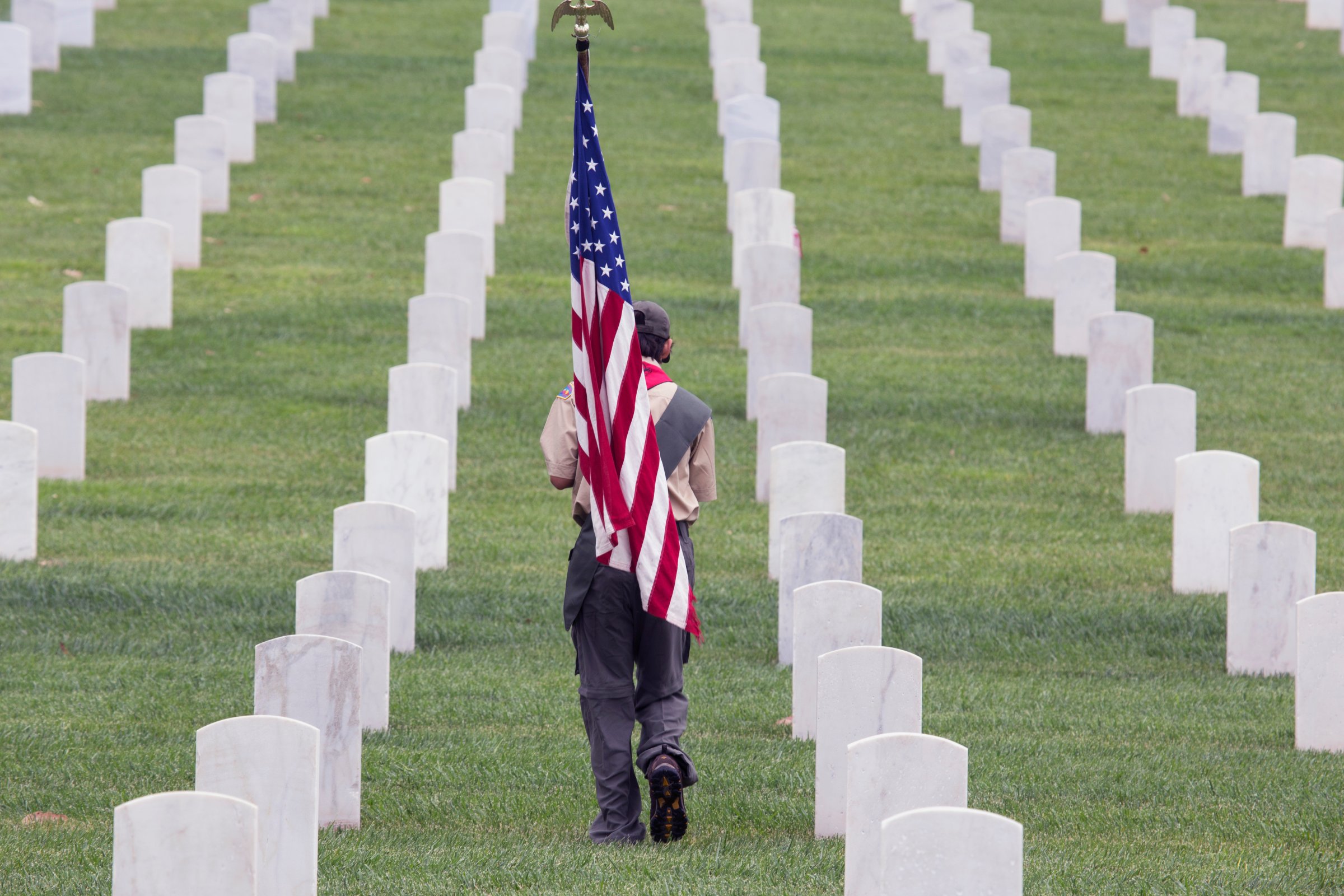
Memorial Day is the gateway to summer. And it’s a great holiday: no presents to buy or turkey to bake, just family, food, and parades.
But it also has a serious purpose: to honor all those who have given their lives in military service.
So how can parents help kids understand what the holiday is about, even as they enjoy it?
With elementary age kids, says Julie Marie Rahm, author of Military Kids Speak, parents can begin by talking about what soldiers fight to protect: “notice what children in other countries are not able to do that we are able to do,” Rahm suggests, whether that’s going to school, or going to church, demonstrating to support our beliefs, or speaking out against the government. One important way kids can honor fallen heroes, Rahm says, is by doing their part to keep the freedoms soldiers fought for in place.
Middle school kids, says Rahm, can begin to think more deeply about the meaning of specific freedoms—and their limits. Kids this age love to claim their freedom of speech, Rahm says. But she also reminds them “that freedom really starts with self-control.” It’s a good time, according to Rahm, to start conversations with kids about how their rights relate to their responsibilities—and about the fact that other people have rights, too.
Read More: How to Teach Your Kids to Embrace the Suck
High school kids are old enough to start thinking about what freedom means to them personally, says Rahm. Often, as they’re on the cusp of adulthood, freedom is already on their mind: why they can’t do everything they want, or their family has rules that are different from another family’s. It’s a good time for parents to start conversations about what kind of freedoms kids wish they had—but also to remind them that all freedom comes with cost, and to encourage them to think about what the price of the personal freedoms they think they want might be.
Families with kids at any age, Rahm suggests, can benefit from taking a moment of silence during the holiday to honor fallen heroes. But to keep kids from just looking at their shoes and letting their minds wander, Rahm encourages parents to have a conversation beforehand, so the moment really is meaningful.
Different families might have different ideas about how that moment is spent: remembering friends or family members who have served, thinking about the history of the country, offering a prayer, contemplating freedom, remembering the victims of war who were not combatants. But that short conversation before a moment of silence, Rahm says, can help any family “talk about their family values, and center them up for the whole day ahead.”
More Must-Reads from TIME
- Caitlin Clark Is TIME's 2024 Athlete of the Year
- Where Trump 2.0 Will Differ From 1.0
- Is Intermittent Fasting Good or Bad for You?
- The 100 Must-Read Books of 2024
- Column: If Optimism Feels Ridiculous Now, Try Hope
- The Future of Climate Action Is Trade Policy
- FX’s Say Nothing Is the Must-Watch Political Thriller of 2024
- Merle Bombardieri Is Helping People Make the Baby Decision
Contact us at letters@time.com